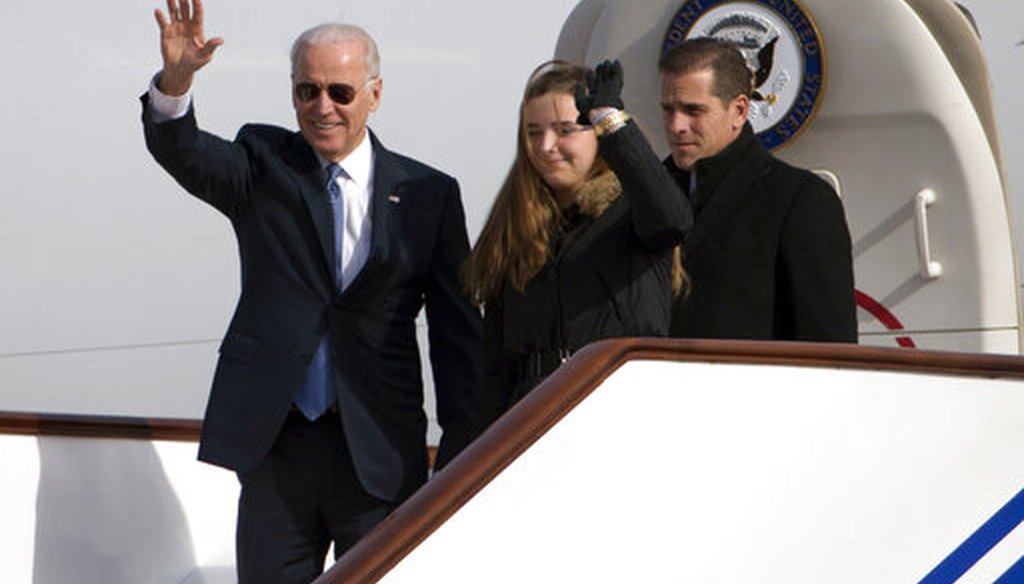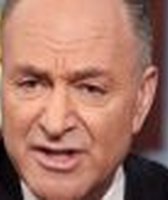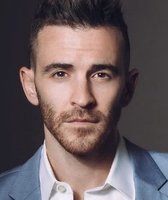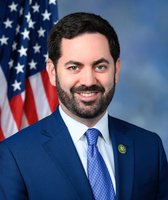Stand up for the facts!
Our only agenda is to publish the truth so you can be an informed participant in democracy.
We need your help.
I would like to contribute

Then-Vice President Joe Biden waves as he walks out of Air Force Two with son Hunter Biden in Beijing on Dec. 4, 2013. (AP via pool)
If Your Time is short
• The granular details of many of the allegations about Hunter Biden’s dealings in China are supported by documentation, but larger conclusions resurrected at the end of the 2020 campaign are unsubstantiated.
• Foreign policy experts say these allegations do not add up to a picture of Joe Biden being corrupt or pursuing policies contrary to the national interest. There is no evidence that Hunter Biden came close to breaking the law, much less any evidence that his father has done so.
• Critics say that the Trump family’s financial entanglements are at least as problematic, if not more so, than the Bidens’.
As Election Day nears, President Donald Trump and his supporters are urging greater scrutiny of Hunter Biden, the son of his opponent, Democratic nominee Joe Biden. They’re especially focusing on the younger Biden’s ties to China.
"Joe Biden must immediately release all emails, meetings, phone calls, transcripts, and records related to his involvement in his family’s business dealings and influence peddling around the world—including in CHINA!" Trump tweeted on Oct. 14. His campaign also ran an ad that said, "The question is not why Hunter Biden used his name to get these gigs. It’s why Joe Biden let him do it."
This line of attack against Biden is crystallized in a new documentary distributed by TheBlaze, a conservative media site, and featuring the conservative author Peter Schweizer.
The film relies on Schweizer’s 2019 book, "Secret Empires: How the American Political Class Hides Corruption and Enriches Family and Friends." Previously, Schweizer wrote the book "Clinton Cash: The Untold Story of How and Why Foreign Governments and Businesses Helped Make Bill and Hillary Rich," which received some poor ratings for accuracy from PolitiFact.
We have previously reviewed some of the allegations leveled at Hunter Biden by Trump allies. However, because of the renewed focus on Hunter Biden’s dealings in China in the closing days of the campaign, we’ll look at some of the issues again here.
Sign up for PolitiFact texts
Late in the documentary, Schweizer offers a narration that summarizes some of the key arguments made by Trump’s allies.
"What we do know is that the Bidens have cultivated very close relationships with members of the Chinese elite, and some of those relationships would be very hard to defend. … We know the Biden family has a series of lucrative deals with the Chinese government. We know that these deals came despite a lack of experience by the Bidens in the areas they cover. We know that they happened while Joe Biden was steering policy towards China.
"We also know that these deals didn't just make the Bidens money — they had dangerous consequences for our national security. We know that Hunter Biden's firm, backed by the Chinese government, invested in a company that was actively stealing nuclear secrets from the United States. We know that China has been consistent in its efforts to acquire U.S. technology, and that their spies have been caught trying to steal our nuclear technology.
"We know that Hunter Biden's firm bought a company that provides dual-use technologies for the Chinese military. We know that global powers have tried to stop China from monopolizing the world's mineral resources. And we know that Hunter Biden's firm bought a company that actually helped China in its competition with the United States for mineral resources."
Many of the granular specifics that Schweizer cites have been documented, but foreign policy experts say the overarching conclusions reached in the documentary miss the mark because they do not add up to a picture of Joe Biden being corrupt or pursuing policies contrary to the national interest.
The documentary leaves the impression that former Vice President Joe Biden is willing to sell out his country’s national security for personal gain. But independent experts agree that this assertion is baseless. The documentary never says that either Biden broke the law, but its pairing of the Bidens with Chinese figures charged with espionage and other crimes, punctuated by spooky music, might give a viewer that impression. However, there is no evidence that Hunter Biden came close to breaking the law, much less any evidence that his father has done so.
Meanwhile, critics say that the Trump family’s financial entanglements are at least as problematic, if not worse.
"There needs to be financial disclosures of adult children of politicians, as well as politicians themselves," said Yoshiko Herrera, a University of Wisconsin professor who previously headed the university’s Center for Russia, East Europe and Central Asia. "Let’s start with President Trump’s tax returns, then all the candidates’ adult childrens’ tax returns, and then we can dig deeper on other extraneous rumors about China."
Here’s a look at some of the claims from the documentary, which we’ve divided into micro-level and macro-level allegations. The Trump or Biden campaigns did not respond to an inquiry for this article, though Schweizer did. Also, for clarity’s sake, the China allegations against Hunter Biden are separate from those involving alleged ties to Ukraine that were published on Oct. 14 by the New York Post, and that have drawn skepticism.
The micro level allegations
"We know the Biden family has a series of lucrative deals with the Chinese government."
How "lucrative" these deals were for Hunter Biden is subject to divergent estimates, but the deals did exist, through Bohai Harvest RST, or BHR, a company that Hunter Biden was involved in to pursue investment opportunities.
In September 2014, a deal was announced for BHR to invest 6 billion Chinese yuan, or about $1 billion at the prevailing exchange rate, in Sinopec Marketing Co. Ltd, a subsidiary of a state-controlled oil and gas company. The BHR investment, finalized in March 2015, was one of several simultaneous investments by various entities that added up to nearly a 30% stake in the firm.
In September 2015, BHR paid $600 million to buy 49% of auto supplier Henniges Automotive Inc.; the Chinese state-owned AVIC Automotive Systems Holding Co., reportedly acquired 51%.
And in April 2017, BHR paid $1.2 billion for 24% of Democratic Republic of Congo-based Tenke Fungurume Mining. Much of the rest of the company is owned by China Molybdenum Co., a private holding company with "state-owned capital participation."
So where did the capital to make these investments by BHR come from? In 2019, the Wall Street Journal, citing business registrations, reported that BHR was 80%-controlled by Chinese entities.
George Mesires, a lawyer for Hunter Biden, told PolitiFact in 2019 that the younger Biden was an unpaid board member until October 2017, at which point he did take a 10% financial stake in BHR.
Mesires later released a statement on Oct. 13, 2019, saying that Hunter Biden would be resigning from the BHR board, without receiving any return on his investment or shareholder distributions. That decision was made around the time that Trump allies were targeting his activities publicly.
"We know that these deals came despite a lack of experience by the Bidens in the areas they cover."
Biden had work experience in the financial services sector and had been a Yale Law School-educated attorney, but he does not appear to have had any significant training in Asia, oil and gas, mining, or aviation.
"We know that (these deals) happened while Joe Biden was steering policy towards China. We also know that these deals didn't just make the Bidens money — they had dangerous consequences for our national security."
Robert Ross, a Boston College political scientist who specializes in China, said that what was known as the Obama administration pivot toward Asia began in 2010. This predated the creation of BHR.
"This policy shift aimed to resist Chinese security policy initiatives," Ross said. "Overall security and economic trends reflected a significant hardening of U.S. policy toward China, as compared to both the Clinton and George W. Bush administrations. For instance, U.S. policy developed greater security cooperation with South Korea, Japan, and the Philippines to strengthen the alliances and to better contend with Chinese policy.
But Ross said that he knows of "no U.S. agreements with China that entailed U.S. security interests, much less that compromised U.S. security."
"We know that Hunter Biden's firm, backed by the Chinese government, invested in a company that was actively stealing nuclear secrets from the United States. We know that China has been consistent in its efforts to acquire U.S. technology, and that their spies have been caught trying to steal our nuclear technology."
Reuters has reported that BHR also invested in China General Nuclear Power Corp, a state-owned company. The company employed a naturalized U.S. citizen and nuclear engineer, Allen Ho, who was indicted in the United States in 2016 for allegedly enlisting U.S.-based nuclear experts to assist in developing and producing special nuclear material in China. "Prosecuting those who unlawfully facilitate the acquisition of sensitive nuclear technology by foreign nations continues to be a top priority of the National Security Division," the Justice Department said its news release about Ho’s sentencing to 24 months in prison.
"We know that Hunter Biden's firm bought a company that provides dual-use technologies for the Chinese military."
The Henniges Automotive deal was done in concert with AVIC, an aviation company that is involved in both military and commercial markets.
"We know that global powers have tried to stop China from monopolizing the world's mineral resources. And we know that Hunter Biden's firm bought a company that actually helped China in its competition with the United States for mineral resources."
The mining deal involved the takeover of a mine that produces significant amounts of cobalt, which technically isn’t a rare-earth element but which is considered a critical mineral by the U.S. government, along with niobium, another commodity produced by the Chinese mining company.
The film acknowledges that the Obama administration was fighting China over rare-earth minerals at the time, which is the opposite of Biden steering U.S. policy towards his son’s benefit.
Problems with the macro-level allegations
Even if the granular details are correct, however, that doesn’t mean there is a widespread scandal. Here are a few reasons why:
The verifiable aspects of the story are about Hunter Biden, not Joe Biden
In many of these allegations, Schweizer uses the term "the Bidens." While the viewer is presumably meant to fill in the blank as "Joe Biden," the allegations really refer to members of his family, particularly Hunter.
In our previous analyses, we’ve made it clear that Hunter Biden did cause a problem of appearances for his father.
"It is apparent to me that Hunter Biden did not do anything illegal in China, but it would have been much better for Joe Biden’s political fortunes if Hunter Biden had not been involved in either Ukraine or China," Lincoln A. Mitchell, an adjunct research scholar at Columbia University’s Arnold A. Saltzman Institute of War and Peace Studies, told us last year.
Barry Naughton, chair of Chinese international affairs at the University of California-San Diego, told us earlier this year that while it’s allowed, "it is certainly a bad thing that our political system allows deals like this, and a bad thing that Hunter Biden takes advantage of them."
In a lengthy investigation of dealings by Hunter Biden and James Biden, the nominee’s brother, Politico concluded that "Biden’s image as a straight-shooting man of the people ... is clouded by the careers of his son and brother, who have lengthy track records of making, or seeking, deals that cash in on his name."
Regardless, there is no evidence that Joe Biden was orchestrating these activities, or benefiting from them.
Schweizer told PolitiFact that he does not "allege anyone broke a law. But I don't know that the threshold for acceptable behavior for our elected leaders needs to be not committing criminal acts."
There’s no evidence that Hunter Biden’s activities drove changes in policy
Just because the deals happened at the same time doesn’t mean that Joe Biden acted corruptly in carrying out policy.
Much the same fallacy can be seen in the accusations that Biden acted to oust Ukraine’s top prosecutor in order to benefit a company where Hunter Biden was serving as a board member. In reality, much of the international community was united in the push to remove the prosecutor due to concerns over corruption.
The rare-earth minerals deal, for instance, ran counter to the administration’s policy, which suggests White House policy was running against Hunter Biden’s business interests.
Schweizer said his research shows that Chinese officials sought out Hunter Biden and his partner Devon Archer "to pursue an agenda of ‘soft diplomacy,’" and that Joe Biden "made numerous public statements in which he portrays China as a harmless rival. … That a sitting vice president is presenting our main rival in this light is not insignificant."
However, a point that the documentary doesn’t note is that Biden’s policy now, as a candidate, has been tough on China. He has been framing "China’s rise as a serious challenge," according to an analysis by the Council on Foreign Relations.
"He has criticized its ‘abusive’ trade practices—warning that it may pull ahead of the United States in new technologies—and its human rights record," the analysis says. "He says he would mount a more effective pushback against China than Trump and work more closely with allies to pressure Beijing."
For better or worse, these sorts of ties are common, and legal, among world leaders.
A wide range of China experts told PolitiFact that it’s not unusual for Chinese government and businesses interests to court prominent Americans or their family members.
"This is a standard operating procedure," Naughton said. "Bring in an influential person, give him a small percentage of a firm as a ‘finders fee,’ and grow the business."
It is a widespread belief of Chinese leaders "that a father always secretly helps his son," said Zhiguo He, a finance professor at the University of Chicago’s Booth School of Business. "Chinese business entities would like to give favors to the son in a proactive way, with the belief that if I am giving deals to the son, the father will remember it. Many lower level officials are doing it."
Neil Bush, the younger brother of then-President George W. Bush, testified in a March 2003 divorce proceeding about a $2 million stock deal with Grace Semiconductor Manufacturing Corp., a firm backed by the son of former Chinese President Jiang Zemin.
HNA Group, a Chinese conglomerate, offered to buy a hedge fund owned by former White House official Anthony Scaramucci; retained the legal services of Gary Locke, the former U.S. ambassador to China, shortly before his confirmation; and provided financing to a private-equity firm backed by Jeb Bush, according to a 2019 account in the Intercept.
The Bank of China added Angela Chao, the sister of Transportation Secretary Elaine Chao and sister-in-law of Senate Majority Leader Mitch McConnell, R-Ky., to its board of directors, the Intercept reported.
President Trump and his family have faced questions of possible conflicts of interest as well, including the granting of Chinese trademarks to Trump’s daughter Ivanka, who owned a fashion line.
Both the Biden and Trump examples involved a child of a powerful U.S. official getting special treatment or business opportunities from the Chinese government, but there are some differences. On one hand, Ivanka Trump’s trademark approval involved an expedited regulatory review, as opposed to an ongoing investment opportunity. On the other hand, unlike Biden, she was a White House official at the time, in addition to being the president’s daughter. And the president himself maintains extensive business interests around the world.
Schweizer told PolitiFact that "any time family members of politicians have business deals with foreign governments, it's fair to raise the issue." However, for the past four years, he said, "the Trump's family members’ financial relationships seem to have been well covered," while Biden’s have not.
Others, however, believe the reason for concern about China ties should tilt more heavily towards the Trump family. He of the University of Chicago said that in his exposure to China over the past 10 years, "I rarely heard about Hunter. I heard a lot more about Ivanka."
Our Sources
Donald Trump, tweet, Oct. 14, 2020
Donald Trump, campaign ad, Oct 15, 2020
"Riding the Dragon," documentary, Sept. 4, 2020
PolitiFact, "Hunter Biden and China: Sorting through a murky business deal," May 22, 2020
PolitiFact, "Donald Trump's accusations about Hunter Biden and a payout from China: A closer look," Oct. 2, 2020
PolitiFact, "Donald Trump’s boasts about former Ukrainian prosecutor’s fairness ring false," Sept. 26, 2019
PolitiFact, "A look behind the NY Post headline about Joe Biden and a Ukraine meeting," Oct. 15, 2020
Peter Schweizer, "Secret Empires: How the American Political Class Hides Corruption and Enriches Family and Friends," 2019
Peter Schweizer, "Peter Schweizer: Biden Ukraine dealings – 7 essential facts," Sept. 25, 2019
Council on Foreign Relations, candidate issues tracker, accessed Oct. 16, 2020
George Mesires, statement, Oct. 13, 2019
Washington Post, "Trump says Hunter Biden ‘walks out of China with $1.5 billion.’ Biden’s lawyer said that’s not true," Sept. 25, 2019
New Yorker, "Will Hunter Biden Jeopardize His Father’s Campaign?" July 1, 2019
Washington Post Fact Checker, "Trump’s false claims about Hunter Biden’s China dealings," Sept. 26, 2019
Washington Post Fact Checker, "Fact-checking President Trump’s wild jabs at Joe Biden," May 23, 2019
New York Times, "Ivanka Trump Wins China Trademarks, Then Her Father Vows to Save ZTE," May 28, 2018
Wall Street Journal, "Bohai, Harvest and U.S. Investment Firms Expand Target for Outbound Fund," July 10, 2014
BHR, website, accessed May 21, 2020
Bloomberg, company profile for the Bohai Harvest RST Shanghai Equity Investment Fund Management Co. Ltd., accessed May 21, 2020
S&P Capital IQ database, BHR Equity Investment Fund Management Company Corporate Timeline, accessed May 21, 2020
Sinopec Marketing Company Ltd., website, accessed May 21, 2020
Sinopec Corp, website, accessed May 21, 2020
State-owned Assets Supervision and Administration Commission, website, accessed May 21, 2020
China Molybdenum Co., website, accessed May 22, 2020
Henninges Automotive, "Henniges Automotive Acquired by AVIC Automotive Systems Holding Co., Ltd. of China," Sept. 9, 2015
Wall Street Journal, "What We Know About Hunter Biden’s Dealings in China," Oct. 4, 2019
The Intercept, "Chinese Fund Backed by Hunter Biden Invested in Technology Used to Surveil Muslims," May 3, 2019
Sydney Morning Herald, "Bush's younger brother quizzed over $2m deal," Nov. 26, 2003
Politico, "Did Elaine Chao’s DOT interviews help her family’s business?" May 6, 2018
Reuters, "Explainer: Trump's claims and Hunter Biden's dealings in China," Oct. 3, 2019
South China Morning Post, "China General Nuclear Power accused of espionage with its adviser in the US," Aug. 11, 2016
U.S. Justice Department, "U.S. Nuclear Engineer Sentenced to 24 Months in Prison for Violating the Atomic Energy Act," Aug. 31, 2017
Knoxville News-Sentinel, "Engineer who bought American nuclear technology for China sentenced to two years," Aug. 31, 2017
US-China Economic and Security Review Commission,"China’s Defense Industry on the Path of Reform," October 2009
Scientific American, "Chinese Heavy Metal: How Beijing Could Use Rare Earths to Outplay America," Aug. 3, 2018
Federal Register, "Final List of Critical Minerals 2018," May 18, 2018
Politico, "Biden Inc.," Aug. 2, 2019
Email interview with George Mesires, lawyer for Hunter Biden, Sept. 27, 2019
Email interview with Barry Naughton, chair of Chinese international affairs at the University of California-San Diego, May 18, 2020
Email interview with Yoshiko Herrera, University of Wisconsin professor who previously headed the university’s Center for Russia, East Europe and Central Asia, Oct. 14, 2020
Email interview with Marc Blecher, professor of politics and East Asian studies at Oberlin College, Oct. 14, 2020
Email interview with Lincoln A. Mitchell, adjunct research scholar at Columbia University’s Arnold A. Saltzman Institute of War and Peace Studies, Oct. 14, 2020
Email interview with Zhiguo He, finance professor at the University of Chicago’s Booth School of Business, Oct. 15, 2020
Email interview with Robert Ross, Boston College political scientist, Oct. 16, 2020
Email interview with Peter Schweizer, documentary narrator, Oct. 19, 2020








































